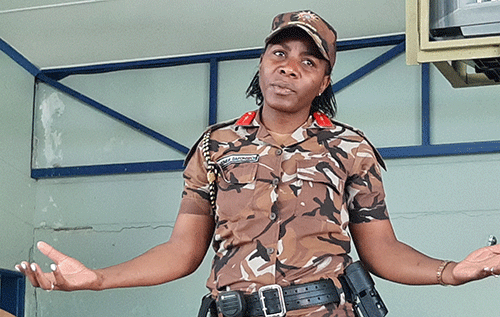OUTAPI – Chief Inspector Christina van Dunem DaFonsech said 27 people have committed suicide last year after they have been accused of witchcraft.
She said this during a police meeting, with various traditional healers, Pentecostal churches and the village headmen on Friday at Outapi in the Omusati region.
She warned that based on the Witchcraft Suppression Proclamation, Act 27 of 1933, the punishment against witchcraft accusers is a five-year imprisoned and or a fine.
“Let us refrain from being fake prophets and traditional healers. I am not saying that we should not have traditional healers in the villages because traditional healers are part of our culture, but we should not mislead people,” she added.
The community policing officer said some traditional healers and charismatic church pastors who are operating as Pentecostal churches are enriching themselves by taking advantage of vulnerable members of society, by crafting witchcraft accusations against each other.
“We no longer have trustworthy traditional doctors. The nation is being misled and families are separated,” she said.
She stressed that many people have lost their lives after being accused of witchcraft.
“Stop mentioning people’s names and labelling them witches if you are not sure. Stop guessing and giving false information to the people,” she urged.
DaFonsech stressed that neighbours, workmates and family members do not have peace with each other anymore.
“Imagine accusing a person by mentioning his or her name as the witch in her workplace. Stop destroying people’s peace at workplaces,” she lamented.
In addition, DaFonsech has urged traditional healers and pastors to refrain from preparing or supplying any poisonous drinks, which is dangerous to people.
She also urged pastors to stop having sexual relationships with school learners or sleeping with people’s wives.
“Churches should stop accommodating people for too long. Churches should stop telling sick people to stop taking their medication.”
She also urged the headmen to ensure that traditional healers in their villages are registered.
“Headmen should know the number of traditional healers in their villages and what they treat,” she said.



